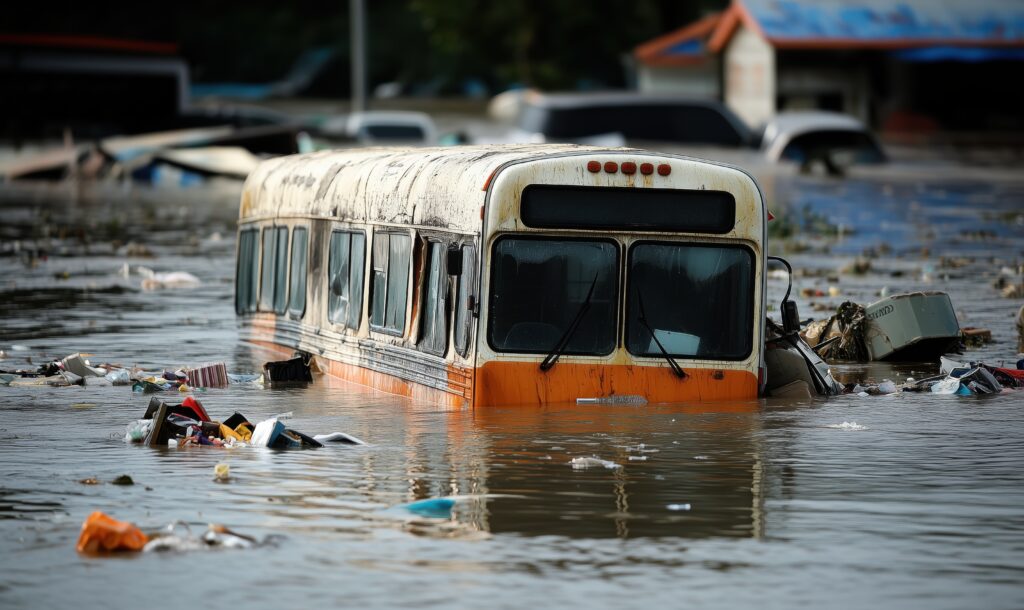Natural disasters, such as hurricanes, earthquakes, wildfires, and floods, are powerful and often devastating events that can lead to significant and prolonged mental health challenges. One of the most serious conditions that can arise in the aftermath of such traumatic events is Post-Traumatic Stress Disorder (PTSD). Understanding the relationship between natural disasters and PTSD is crucial for recognizing the symptoms and seeking appropriate treatment. At Massachusetts Mental Health Treatment Centers, we are dedicated to providing compassionate care and innovative treatment for individuals impacted by PTSD from natural disasters.
Understanding PTSD from Natural Disasters
PTSD is a mental health condition that can develop after a person experiences or witnesses a traumatic event. Symptoms of PTSD can include flashbacks, nightmares, severe anxiety, and uncontrollable thoughts about the event. While PTSD is commonly associated with military combat, it is important to recognize that natural disasters can also be a significant trigger for this condition.
Can You Get PTSD from a Natural Disaster?
The answer is yes, you can get PTSD from a natural disaster. The sudden and overwhelming nature of these events, coupled with the potential for loss of life, injury, and destruction of property, can have a profound impact on an individual’s mental health. Natural disasters disrupt the sense of safety and normalcy, leading to intense stress and anxiety.
The Impact of Natural Disasters on Mental Health
- Immediate Trauma
The initial experience of a natural disaster is often marked by chaos, fear, and uncertainty. People may be forced to evacuate their homes, witness the devastation of their communities, or suffer injuries. This immediate trauma can lead to acute stress reactions, which, if not addressed, can develop into PTSD. - Loss and Grief
Natural disasters can result in significant losses, including the loss of loved ones, homes, and personal belongings. The grief and sorrow associated with these losses can be overwhelming and contribute to the development of PTSD from natural disasters. - Ongoing Stress and Uncertainty
In the aftermath of a natural disaster, survivors often face ongoing stressors such as displacement, financial hardship, and uncertainty about the future. The prolonged nature of these challenges can exacerbate feelings of helplessness and anxiety, increasing the risk of developing PTSD. - Disruption of Social Support Networks
Natural disasters can disrupt social support networks by displacing families and communities. The loss of social support and connection can make it more difficult for individuals to cope with the traumatic experience and the emotions that follow, contributing to the onset of PTSD.
Recognizing the Signs of PTSD
It is important to recognize the signs of PTSD in order to seek timely and effective treatment. The symptoms of PTSD can vary but commonly include:
- Intrusive Thoughts and Memories: Unwanted and distressing memories of the disaster may intrude on a person’s thoughts, causing significant distress.
- Nightmares: Individuals may experience recurrent nightmares related to the disaster.
- Avoidance: Avoiding places, people, or activities that remind them of the disaster.
- Hyperarousal: Symptoms such as being easily startled, feeling tense or on edge, and difficulty sleeping.
- Negative Changes in Mood and Thinking: Feelings of hopelessness, emotional numbness, and difficulty experiencing positive emotions.
Seeking Help for PTSD from Natural Disasters
The road to recovery from PTSD is a personal journey, and seeking professional help is a crucial step towards healing. At Massachusetts Mental Health Treatment Centers, we offer comprehensive mental health programs designed to support individuals experiencing PTSD from natural disasters. Our approach is rooted in empathy, understanding, and innovation, ensuring that each person receives personalized care.
Why Choose Massachusetts Mental Health Treatment Centers?
- Experienced Professionals Our team of mental health professionals includes licensed therapists, psychologists, and psychiatrists with extensive experience in treating PTSD. We are committed to providing evidence-based care tailored to each individual’s unique needs.
- Innovative Treatment Approaches We utilize cutting-edge therapeutic techniques and treatment modalities to address PTSD from natural disasters. Our approach includes trauma-focused cognitive-behavioral therapy (CBT), eye movement desensitization and reprocessing (EMDR), and other specialized interventions.
- Compassionate and Supportive Care We understand the profound impact that natural disasters can have on mental health. Our compassionate and supportive environment ensures that individuals feel safe and understood as they navigate their recovery journey.
- Personalized Care Plans We recognize that each person’s experience with PTSD is unique. Our personalized care plans are designed to address the specific needs and goals of each individual, promoting holistic healing and long-term well-being.
Take the First Step Towards Healing
If you or a loved one is struggling with PTSD from natural disasters, know that you are not alone. At Massachusetts Mental Health Treatment Centers, we are here to support you every step of the way. Our compassionate team is dedicated to helping you regain a sense of safety, peace, and well-being.
Reach out to us today to learn more about our mental health programs and how we can assist you in your journey towards recovery. Together, we can build a brighter future and help you reclaim your life from the effects of natural disasters. Contact us today and take the first step towards healing and recovery.
At Massachusetts Mental Health Treatment Centers, you are in good hands.










